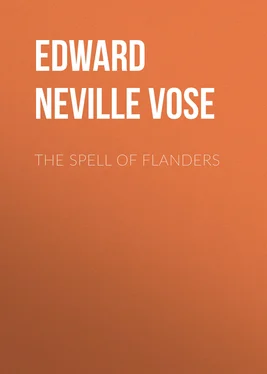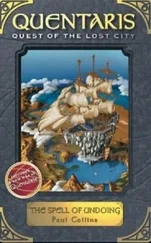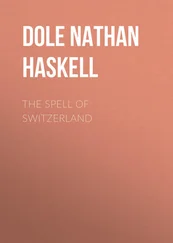Edward Vose - The Spell of Flanders
Здесь есть возможность читать онлайн «Edward Vose - The Spell of Flanders» — ознакомительный отрывок электронной книги совершенно бесплатно, а после прочтения отрывка купить полную версию. В некоторых случаях можно слушать аудио, скачать через торрент в формате fb2 и присутствует краткое содержание. Жанр: Путешествия и география, foreign_antique, foreign_prose, на английском языке. Описание произведения, (предисловие) а так же отзывы посетителей доступны на портале библиотеки ЛибКат.
- Название:The Spell of Flanders
- Автор:
- Жанр:
- Год:неизвестен
- ISBN:нет данных
- Рейтинг книги:5 / 5. Голосов: 1
-
Избранное:Добавить в избранное
- Отзывы:
-
Ваша оценка:
- 100
- 1
- 2
- 3
- 4
- 5
The Spell of Flanders: краткое содержание, описание и аннотация
Предлагаем к чтению аннотацию, описание, краткое содержание или предисловие (зависит от того, что написал сам автор книги «The Spell of Flanders»). Если вы не нашли необходимую информацию о книге — напишите в комментариях, мы постараемся отыскать её.
The Spell of Flanders — читать онлайн ознакомительный отрывок
Ниже представлен текст книги, разбитый по страницам. Система сохранения места последней прочитанной страницы, позволяет с удобством читать онлайн бесплатно книгу «The Spell of Flanders», без необходимости каждый раз заново искать на чём Вы остановились. Поставьте закладку, и сможете в любой момент перейти на страницу, на которой закончили чтение.
Интервал:
Закладка:
But now we are warping up against the Red Star Line pier and all eyes are gazing down upon the motley crowd that has assembled thus early in the morning—it is not yet seven o’clock—to welcome the new arrivals from America. The customs inspection proves to be a mere formality, half of our trunks and bags are chalk-marked by the obliging inspector without lifting a tray or disturbing any of their contents. A commissionaire is waiting to bear them away to the cabs and, after generously bestowing five cents on this worthy for his trouble, we are off for the Gare Centrale—for the Madame has decreed that we must all proceed forthwith to the home of a certain Tante (Aunt) Rosa, not far from Brussels, where we can get our land legs safely on before starting on our tour under the guidance of the Professor.
Throughout the morning it has rained heavily at intervals, and as the rapide for Brussels steams out of the station the grey clouds are pouring down their contents in torrents. This circumstance disturbs us not at all, for we have agreed to pursue our course regardless of the weather and are prepared for anything short of a flood or blizzard. And right here it may be as well to state that any one who proposes to travel in Flanders must make up his or her mind to ignore the vagaries of the weather altogether. At Brussels the weather records show that it rains more or less during three hundred days in each year, and while there are many days when the showers are brief, and some periods when it is clear for several days, it is better to come prepared for anything. Somewhere in the direction of the English Channel there seems to exist a vast cloud factory, for day after day one sees the huge cloud masses rolling slowly eastward or southward across the country. Usually they are high overhead, with frequent intervals of brilliant sunshine, and the showers few and far between. At other times the clouds hang low and dark and the rain falls steadily, not in furious driving showers such as occur frequently during the summer time at New York, but with a monotonous continuity that is the despair of travellers who are equipped only for fair weather. It is no exaggeration to state that one may look out of his hotel window upon a cloudless sky and find that by the time he has descended to the street it is raining. Happily the reverse is equally possible, and frequently we looked out of the window while at breakfast at pouring rain and dripping roofs, only to find by the time we were ready to go out of doors that the shower was over, the sky clear and the sidewalks nearly dry. It is this rapid alternation of showers and sunshine that makes Flanders the land of flowers and vegetables, giving the former their brilliant colouring and the latter their indescribable succulence and freshness.
Another tip for the would-be traveller in Flanders is to come well prepared for cold weather even in June, July or August. The nights are always cool, and the prevailing winds are from the north or the northwest—the former cold, the latter wet. Many Americans contract serious colds because they come clad only for hot weather. Warm underwear, on the other hand, is best for the Flemish summer climate, with overcoats and wraps for evening wear. Raincoats, it is needless to say, should be in every suitcase—even for a day’s outing, while a very handy article indeed is a parapluie-canne , or umbrella cane, such as can be purchased in Brussels for ten francs and upwards.
In less than three-quarters of an hour our fleet train was rolling into the Gare du Nord at Brussels; but Madame was in a hurry, so we became for the time birds of passage only and in another hour were already entrained again and speeding toward the steaming dinner that she assured us la Tante Bosa had awaiting us. Of the reception that we found when we arrived at last, and of the dinner which was presently spread before us, there is no need to say more than that the latter proved to be all that we had been led to anticipate. Served in the true Belgian style—customary alike in Flanders and in the Walloon provinces—it occupied our attention for the greater part of the afternoon, the courses following one another leisurely, with intervals between during which the men folk strolled about the garden and smoked. Two days later we started on the Professor’s itinerary, completely refreshed after the fatigue of our voyage; and after a bit of shopping at Brussels, our pilgrimage into the heart of Flanders began.
It was a little after noon when we reached the old city of Bruges, and while we were eating our luncheon the Professor explained briefly the origin of the city and of the County of Flanders. In order to understand the kaleidoscopic history of Flanders it is necessary to forget entirely the Europe of to-day. Throughout the Middle Ages Europe was sub-divided into hundreds of separate sovereignties—duchies, counties, principalities large and small, whose rulers bore a score of titles. These, as a rule, acknowledged allegiance to some higher prince, while the most powerful yielded deference only to some King or Emperor. But this allegiance was usually a very shadowy affair, and the actual government rested absolutely in the hands of the local Count, or Duke, or whatever else his title may have been. The history of Flanders is, therefore, in a sense, the history of its Counts, for as their power waxed or waned the country itself grew powerful or weak. Gradually, however, the great cities of Flanders acquired from the earlier and better Counts rights and privileges that made them, in many respects, sovereign powers, and the most fascinating and instructive part of the history of Flanders is the record of the brave struggle made by its burghers to maintain their liberties in the face of a steadily advancing tide of tyranny and oppression.
The first Count of Flanders, who won his title and his domains during the period of storm and stress that followed the breaking up of the great empire of Charlemagne, was a Flemish chief, called Baldwin of the Iron Arm. He chanced one day to see Judith, the beautiful daughter of Charles the Bald, the son of Charlemagne, fell in love with her, and carried her off for his bride. Judith had been previously married to Ethelwolf, King of Wessex in England, when he was a very old man; and had taught her stepson, who afterward became Alfred the Great, much of his learning. The old King Charles, her father, for a time opposed the marriage with Baldwin, but finally it was celebrated with much splendour at Auxerre in 863, and Baldwin was thereupon given the title of Count of Flanders. On his return, Baldwin built a great fortress on an island formed by the intersection of the River Roya with its little tributary, the Boterbeke. This was called the Bourg, and soon contained within its strong walls the nucleus of the future city of Bruges.
Mrs. Professor interrupted at this point to ask if the name Bruges was derived from Bourg, to which our learned friend replied that it was not, but that most historians ascribed the name to the bridge (in Flemish, brigge) from the island to the mainland; while some take it from the purple heather (brugge) which grows plentifully hereabout, and in August can be seen alongside the railway tracks and in great clusters by the country roadsides.
The first afternoon’s programme was to discover as much as we could of the old Bourg of Baldwin of the Iron Arm. Not much of it is left in the Bruges of Albert the First. The Roya still runs where it did in the days of the first Counts of Flanders, but only along the Dyver, a terrace of middle-class residences, can it be seen by the tourist. Since the eighteenth century it has been vaulted over for much of its course through the city, and the Boterbeke runs through subterranean channels for the entire distance from where it enters the city limits to its junction with the Roya at the corner of the rue Breidel. It flows close to the Cathedral, or possibly beneath it, and directly under the Belfry, which is built on piles. For part of its course it runs, like a subway, under the rue du Vieux Bourg. The only building in modern Bruges that dates from the first Baldwin’s time is the crypt of St. Basil, under the Chapel of the Holy Blood. Here, or assuredly hard by, the founder of the long line of Flemish Counts, and his beautiful and talented Countess, no doubt worshipped; and, in the main, the little chapel probably looks today very much as it did a thousand years ago. In one corner, apparently outside of the original outer walls of the structure, the concierge showed us a miniature model of the ancient castle of the first Counts of Flanders as archeologists have reconstructed it, with the little Chapel of St. Basil adjoining it. On the opposite side, and near the entrance, is a smaller chapel which some authorities state was the one built by old Iron-Arm, the main structure dating from the middle of the twelfth century. Be this as it may, here is unquestionably the very oldest relic of the ancient Bourg and one of the oldest places of worship in all Flanders.
Читать дальшеИнтервал:
Закладка:
Похожие книги на «The Spell of Flanders»
Представляем Вашему вниманию похожие книги на «The Spell of Flanders» списком для выбора. Мы отобрали схожую по названию и смыслу литературу в надежде предоставить читателям больше вариантов отыскать новые, интересные, ещё непрочитанные произведения.
Обсуждение, отзывы о книге «The Spell of Flanders» и просто собственные мнения читателей. Оставьте ваши комментарии, напишите, что Вы думаете о произведении, его смысле или главных героях. Укажите что конкретно понравилось, а что нет, и почему Вы так считаете.












